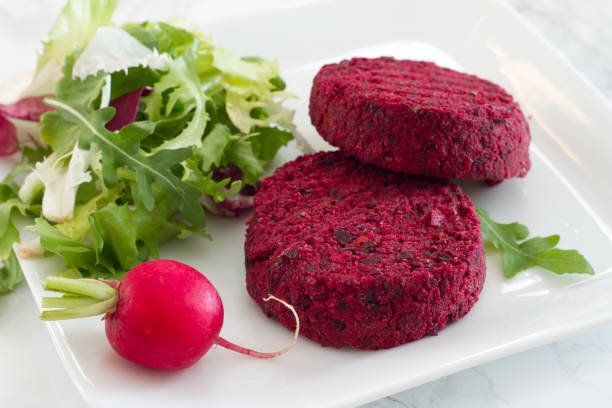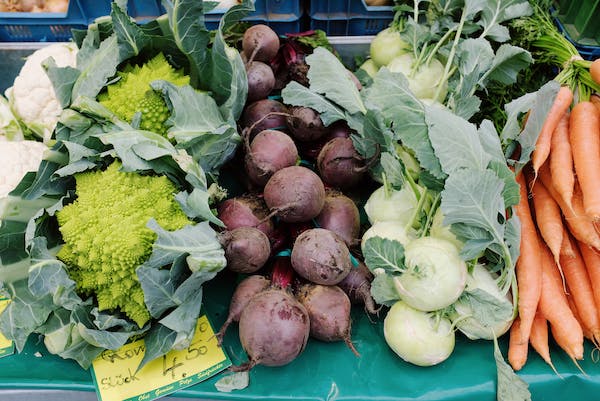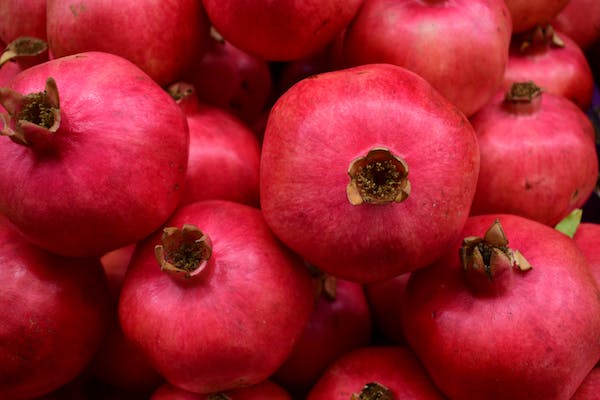Overview
-
Beetroot is a root vegetable with vibrant colors and numerous health benefits. It is rich in essential vitamins and minerals, including vitamin C, vitamin B6, folate, manganese, potassium, and iron.
-
Beetroot has anti-inflammatory properties, which can reduce inflammation and lower the risk of certain diseases. Beetroot can enhance exercise performance, leading to increased stamina and reduced fatigue.
-
Beetroot can be prepared through roasting, boiling, or steaming, and it can be used in various recipes such as salads, hummus, soups, smoothies, risottos, chips, and burgers
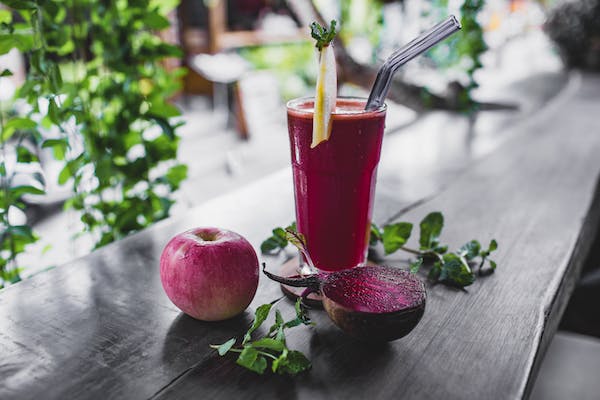
beetroot
Beetroot, scientifically known as Beta vulgaris, is a root vegetable that belongs to the Chenopodiaceae family. Beyond its striking appearance, beetroot is renowned for its impressive nutritional profile. It is a good source of essential vitamins and minerals, including folate, vitamin C, potassium, and manganese.
It is characterized by its vibrant and unique deep purple-red color, which is an implicate of its rich nutritional content. The edible part of beetroot is the swollen taproot, typically round or bulbous in shape, although there are also cylindrical varieties.
Beetroot has been cultivated for donkey’s years and is widely appreciated and consumed for its unique and beautiful earthy flavor and numerous health benefits. It is not only a versatile veggie in the culinary world but also a popular ingredient in various cuisines across the globe.
Health benefits of Beetroot
1. Anti-Inflammatory Properties
The betalain pigments present in beetroot have anti-inflammatory properties that can reduce inflammation by acting on body responses, without directly antagonizing the causative agent.
Many illnesses, including as arthritis, cancer, and heart disease, have been related to chronic inflammation. Beetroot can aid in reducing inflammation and lowering the risk of certain illnesses when consumed moderately and often.
2. Enhances Exercise Performance
Beetroot nitrates can improve exercise performance by enhancing endurance and optimizing oxygen uptake. Studies have shown that consuming beetroot juice before workouts can lead to increased stamina, reduced fatigue, and improved exercise efficiency.
3. Possess anti-cancer properties
A well research suggests that beetroot may possess anti-cancer properties, although further studies are needed to fully clarify and understand its potential effects and its verity.
Beetroot contains various compounds, including betalains and other antioxidants, which exhibit strong free radical-scavenging abilities an anti-inflammatory properties. These inherent properties are said to aid in the combating oxidative stress and chronic inflammation, both of which are associated to the development and progression of cancer.
4. Promotes Digestive Health
Apart from the possibility of having anti-cancer properties, beetroot is also an excellent source of dietary fiber, which aids digestion, prevents constipation, and promotes a healthy digestive system. Fiber also helps maintain a healthy weight, as it keeps you feeling full for longer and reduces overeating.
5. Lower Blood Pressure
You stand a chance of suffering from high blood pressure, which can negative impact on your blood vessels and heart. Once they are affected, there are possibilities of other related diseases like stroke, heart disease, and eventually early death.
Eating beets may fight and reduce the chances of having these chronic diseases due to the content of organic nitrate. In a few hours, beets or their juice can reduce blood pressure.
6. Supports Detoxification
Beetroot contains antioxidants and phytonutrients properties that support healthy function of the liver and aid in detoxification. The compounds in beetroot help to eliminate toxins from the body and support the liver’s natural detoxification processes, promoting overall detoxification and improving liver health.
7. Supports Skin Health
Another major work of phytonutrients in beetroot is that they contribute to healthy skin. They help neutralize free radicals, reduce oxidative stress, and promote a youthful complexion. Beetroot’s high vitamin C content also supports collagen production, which is essential for maintaining skin elasticity and reducing the appearance of wrinkles.
8. Contain anti-cancer properties
Beetroot, through harnessing the force of nature, emerges as a vigorous ally in the fight against cancer. Its crimson depths contain a wealth of chemicals, including the potent betaine, ferulic acid, rutin, kaempferol, and caffeic acid.
While preliminary test-tube investigations indicate that the extract of this red gem has the capacity to inhibit cancer cell development and proliferation.
Nutritional Facts about Beetroot
The impressive nutrient profile of beetroot encompasses an abundance of essential vitamins and minerals, bolstering its reputation as a nutritional powerhouse. Let’s delve further into the remarkable benefits provided by these key nutrients:
Vitamin C
An excellent source of vitamin C-Beetroot, a powerful antioxidant known for its immune-boosting and protection qualities. Vitamin C is essential for immune system support against disease, boosting collagen production for healthy skin, assisting in wound healing, and improving iron absorption.
Vitamin B6
B6 is one of the vitamins in the B complex. Beetroot contains a water-soluble vitamin that is essential for a number of enzyme processes involved in metabolism, brain development, and neurotransmitter generation. Vitamin B6 also helps with red blood cell formation, the nervous system, and mood management.
Folate
According to studies folate has its source from beetroots, a B-vitamin crucial for DNA synthesis, red blood cell production, and proper fetal development during pregnancy. Adequate folate intake is particularly important for women of childbearing age to prevent neural tube defects in their offspring.
Manganese
Apart from being crucial for DNA synthesis, you can find some worthy amount of manganese in beetroot, a trace mineral that acts as a cofactor for various enzymes involved in metabolism, bone formation, and antioxidant defense.
Manganese also supports collagen production, aids in blood sugar regulation, and contributes to the health of connective tissues.
Potassium
As a rich source of potassium, beetroot assists in maintaining proper body fluid balance, electrolyte regulation, and healthy blood pressure levels. Potassium is essential for optimal nerve and muscle function and plays a role in cardiovascular health.
Iron
Beetroot also provides a modest amount of iron, an essential mineral involved in oxygen transport and red blood cell formation. Iron supports energy production, immune function, and cognitive health. Pairing beetroot with foods high in vitamin C enhances iron absorption.
Best Beetroot Recipes
Roasted Beetroot Salad: Roasting beets brings out their inherent sweetness and earthy qualities. To make a bright salad, toss roasted beet slices with fresh greens, crumbled feta cheese, toasted almonds, and a zesty vinaigrette.
Beetroot Hummus: Add a twist to traditional hummus by incorporating roasted or steamed beets into the mix. The result is a vibrant pink hummus with a slightly sweet taste. Serve it with pita bread, vegetable sticks, or as a spread for sandwiches.
Beetroot Soup: Borscht, a classic Eastern European beet soup, is a culinary delight. Boil beets with carrots, cabbage, and onions, then season with herbs like dill and a splash of vinegar for a hearty and warming soup.
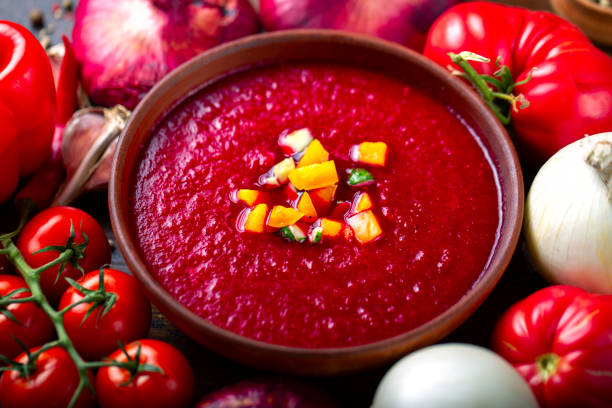
Beetroot-Soup
Beetroot Smoothie: Blend cooked beets with fruits like berries, banana, and a splash of citrus juice for a nutritious and refreshing smoothie. The vibrant color and earthy-sweet taste of beets add a unique twist to your usual smoothie repertoire.
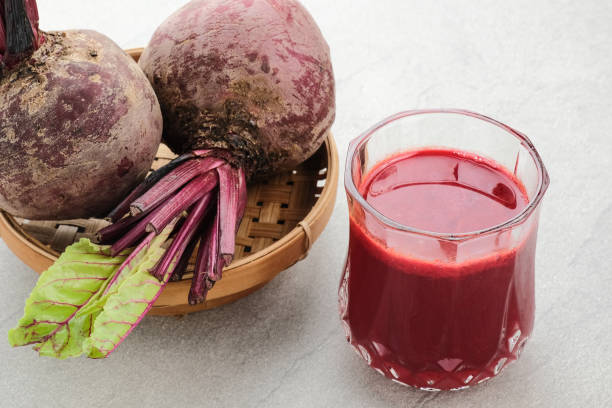
Beetroot Risotto: Elevate your risotto game by adding grated or pureed beets to the mix. The beets infuse the dish with their vibrant color and subtle flavor, creating a visually stunning and delicious twist on a classic dish.
Beetroot Chips: Slice beets thinly, toss them with olive oil, sprinkle with your favorite seasonings, and bake them until crispy. These homemade beet chips make a healthy and addictive snack that is packed with nutrients.
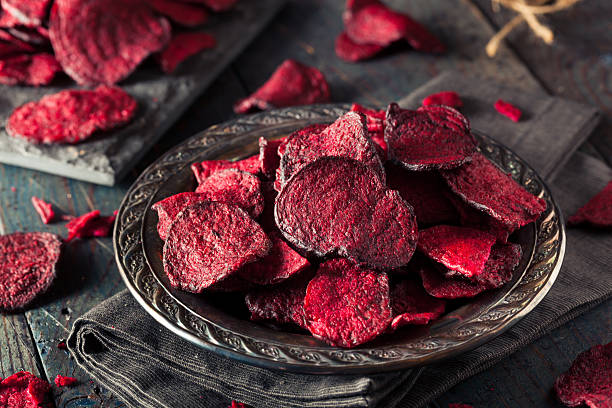
Beetroot Burger: Combine cooked beets, black beans, grains, and spices to create a delicious and nutritious beet burger. Serve it on a bun with your favorite toppings for a meatless burger option that is both colorful and satisfying.
